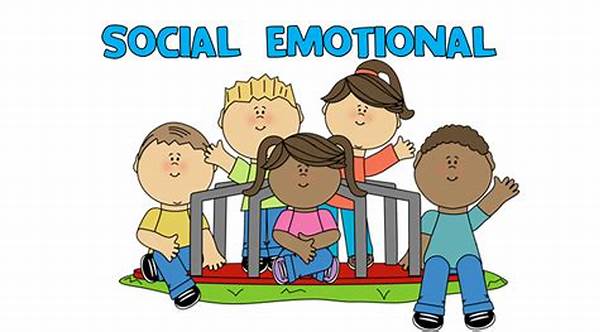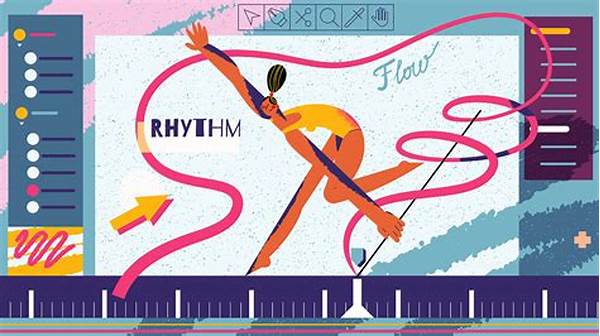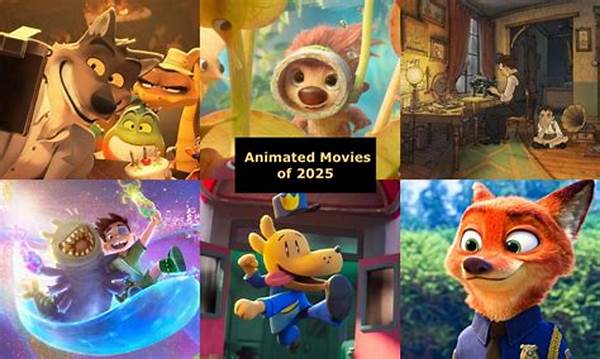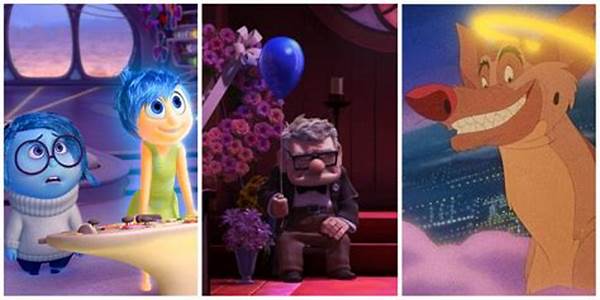In a world increasingly dominated by digital interaction, face-to-face social skills are becoming more crucial yet harder to cultivate. What if I told you that cartoons, yes, the very same animated wonders that once graced our Saturday mornings, could be a pivotal tool in social skills development? Buckle up, folks! You’re about to discover how social skills development through cartoons is not just a myth but a reality unfolding right before our screens.
Read Now : Educational Animation Projects For Classroom
How Cartoons Shape Social Abilities
You might think of cartoons as just mindless entertainment, but they’re anything but that. Picture this: a young child is glued to their screen, eyes wide with fascination as animated characters navigate conflicts, friendships, and challenges. Not only are they entertained, but they’re also absorbing vital social cues. Through the dynamic storytelling of cartoons, children are exposed to a whirlwind of emotions, dialogues, and interactions. Characters in cartoons often experience misunderstandings and resolutions, offering young viewers a front-row seat to social problem-solving. Social skills development through cartoons is like having a soft-spoken mentor in animated form, subtly guiding children through the labyrinth of social interactions. Isn’t it time we started paying attention to this powerful, humorous, yet educational resource?
Now, don’t get it twisted—this doesn’t mean kids should sit and watch screens endlessly. But, think about it: cartoons help bridge communication gaps by breaking down complex emotions and situations into bite-sized nuggets tots can easily digest. Before you know it, your little one is not just reciting their ABCs but also practicing empathy, observing sharing behaviors, and understanding the importance of cooperation. Social skills development through cartoons transforms passive viewing into an interactive experience that molds kids into socially adept beings.
Why Parents Should Encourage Cartoon Viewing
1. Role Models without the Drama: Cartoons provide heroes and heroines that are palatable and relatable, offering social lessons without the baggage of reality TV drama. Social skills development through cartoons can teach invaluable lessons of perseverance, honesty, and teamwork.
2. Language and Communication: Watch as your child picks up new words and phrases, enhancing their verbal communication skills. Through engaging dialogues, social skills development through cartoons becomes a gateway to language acquisition.
3. Emotional Intelligence: By witnessing a character’s emotional rollercoaster, children learn to label and manage their emotions better. Emotional literacy is a stepping stone of social skills development through cartoons.
4. Shared Viewing Experiences: Watching cartoons together facilitates family bonding and provides an opportunity to reinforce the social morals depicted onscreen.
5. Creative Problem-Solving: Facing imaginary cartoon dilemmas pushes young minds to think creatively about solutions, fostering critical thinking and problem-solving skills integral to social interactions.
The Impact on Young Minds
Social skills development through cartoons is no mere digital pipe dream—it’s grounded in psychological research. Studies have shown that children who regularly watch age-appropriate cartoons tend to display enhanced empathy and cooperation skills. Imagine a generation where kids don’t just recite mathematical equations but also embody kindness, cooperation, and respect. That’s the power of strategic cartoon viewing!
There’s more to social skills development through cartoons than meets the eye. It combines eye-catching animation with storylines that aren’t just packed with vibrant characters but also with the subtleties of human interaction. These interactions become mental templates for young viewers as they navigate their real-world social circles. So, the next time you dim the lights for a cartoon evening, remember you’re not just providing entertainment; you’re setting the stage for emotional growth and social learning.
Read Now : “creating Complex Villain Narratives”
Ready to Make a Change?
Real talk: parents, teachers, and guardians must be strategic about the content young minds consume. When selected carefully, cartoons can be an education powerhouse. Plus, they’re a direct line to modern social dynamics that books alone can’t provide. Social skills development through cartoons isn’t about substituting traditional learning; it’s about augmenting it in a vibrant, accessible new way.
As we’ve transitioned into this hyper-digital age, let’s not overlook what’s right in front of our screens. Let’s embrace tools like cartoons to arm our children with social skills that aren’t just theory but practice—an invaluable arsenal they’ll carry through life.
The Unseen Benefits of Animation
All those bright flashes, funny noises, and exaggerated gestures in cartoons are more than gimmicks to keep kiddos entertained. They set the scene for more profound social learning. Visual storytelling found in cartoons capitalizes on engaging young minds in identifying with characters and situations, thus helping in empathic development. Social skills development through cartoons not only engages hearts but also shapes perceptions—an educational tool we can’t afford to ignore.
Efficient social skills can directly impact a child’s ability to make friends, perform well academically, and ultimately thrive in adulthood. As educators and guardians, understanding this helps us leverage all available resources, including cartoons, to guide them toward well-rounded development.
Conclusion: Cartoons – More Than Meets the Eye
To wrap it up, social skills development through cartoons offers a treasure trove of learning opportunities. We’ve analyzed various angles and concluded that these animated narratives can coexist alongside traditional forms of learning to provide a holistic developmental environment for young individuals. Don’t mistake cartoons for merely fun and games; they’re paving the pathway to enhanced social learning and emotional intelligence.
In advocating for strategic cartoon viewership, it’s essential to remember these animations are tools, not a replacement, for learning. They enrich understanding and provide supplementary support for children’s growth in today’s digital era. With the right balance, cartoons can be a powerful ally in educational and social development.



